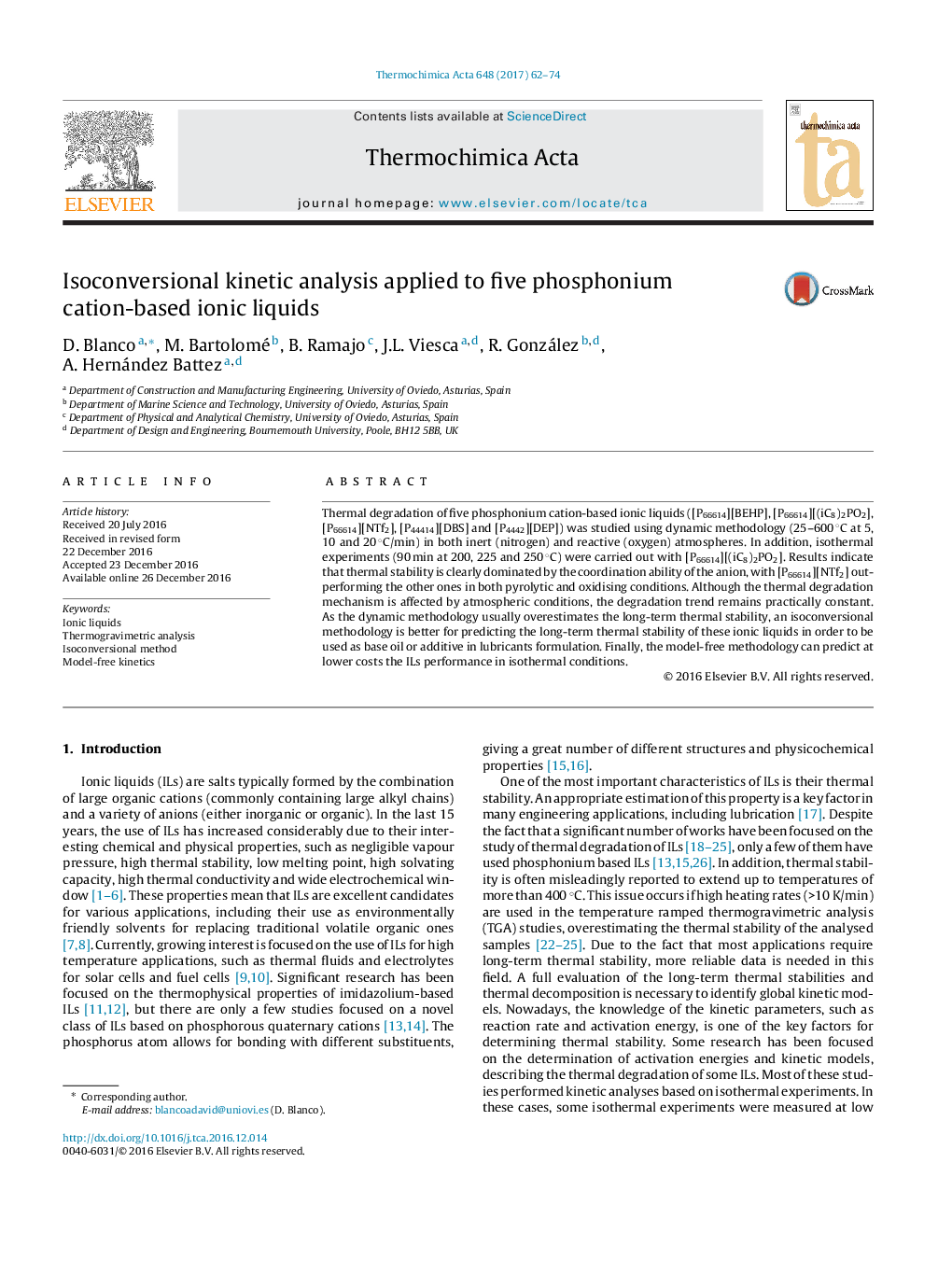| Article ID | Journal | Published Year | Pages | File Type |
|---|---|---|---|---|
| 4996035 | Thermochimica Acta | 2017 | 13 Pages |
Abstract
Thermal degradation of five phosphonium cation-based ionic liquids ([P66614][BEHP], [P66614][(iC8)2PO2], [P66614][NTf2], [P44414][DBS] and [P4442][DEP]) was studied using dynamic methodology (25-600 °C at 5, 10 and 20 °C/min) in both inert (nitrogen) and reactive (oxygen) atmospheres. In addition, isothermal experiments (90 min at 200, 225 and 250 °C) were carried out with [P66614][(iC8)2PO2]. Results indicate that thermal stability is clearly dominated by the coordination ability of the anion, with [P66614][NTf2] outperforming the other ones in both pyrolytic and oxidising conditions. Although the thermal degradation mechanism is affected by atmospheric conditions, the degradation trend remains practically constant. As the dynamic methodology usually overestimates the long-term thermal stability, an isoconversional methodology is better for predicting the long-term thermal stability of these ionic liquids in order to be used as base oil or additive in lubricants formulation. Finally, the model-free methodology can predict at lower costs the ILs performance in isothermal conditions.
Related Topics
Physical Sciences and Engineering
Chemical Engineering
Fluid Flow and Transfer Processes
Authors
D. Blanco, M. Bartolomé, B. Ramajo, J.L. Viesca, R. González, A. Hernández Battez,
